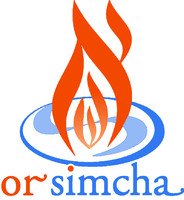The Ushpizin - Sukkah Guests
According to Kabbalistic tradition, we are visited in the sukkah by seven supernal ushpizin ("guests") -- Abraham, Isaac, Jacob, Moshe, Aaron, Joseph and David. On each of the seven days of the festival, another of the seven ushpizin (in the above order) leads the group.
Abraham: (a) (1813-1638 BCE) The first of the three Patriarchs; the first Jew. He discovered G-d on his own and rejected the idolatry of his contemporaries. G-d commanded him to travel from his Mesopotamian homeland to Canaan, where He bequeathed the land to his descendants in the Covenant between the Parts. He successfully withstood ten tests with which G-d challenged him, including the Binding of Isaac incident. Husband of Sarah and Hagar, father of Ishmael and Isaac--his heir. (b) A common Jewish name.
Isaac: (a) (1713-1533 BCE) Second of the three Patriarchs, son of Abraham and Sarah, husband of Rebecca, father of Jacob and Esau. First to be circumcised when eight days old. Readily accompanied his father to be sacrificed at the “Binding of Isaac.” Primarily occupied himself with digging wells. (b) A common Jewish name.
Jacob: (a) (1653-1506 BCE) Third of the Patriarchs, son of Rebecca and Isaac. A studious man, he incurred his twin brother Esau’s wrath when he deceptively received Isaac’s blessings. He fled to Padan Aram where he married Leah and Rachel. He fathered the Twelve Tribes and Dinah. He returned to Canaan but lived his final years in Egypt, where he went to be with his son Joseph, viceroy of Egypt. He’s buried in the Cave of Machpelah in Hebron. (b) A common Jewish name.
Moshe: (a) (1393-1273 BCE) Greatest prophet to ever live. Son of Amram and Jochebed, younger brother of Miriam and Aaron. Born in Egypt and raised by Pharaoh’s daughter. Fled to Midian, where he married Zipporah. Deployed by G-d to Egypt to liberate the Israelites. Visited ten plagues upon Egypt, led the Israelites out, and transmitted to them the Torah at Mt. Sinai. Led the Israelites for forty years while they traveled in the desert, all the while performing astonishing miracles and wonders. Died in the Plains of Moab, and succeeded by his disciple Joshua. (b) A common Jewish name. (Just ask the Rabbi )
Aaron: (a) (1397-1273 BCE) Son of Amram and Jochebed, brother of Miriam and Moses. Moses’ partner and spokesman in his mission to free the Israelites from Egypt. First High Priest and patriarch of the Priestly Family. A man who loved peace and always sought to bring conflicting parties to reconciliation. Died in the desert, shortly before the Israelites entered Canaan. (b) A common Jewish name.
Joseph: (a) (1562-1452 BCE) Son of Jacob and Rachel, eleventh of the Twelve Tribes. As the oldest son of his favored wife, Jacob loved him dearly and gave him preferential treatment, causing Joseph's brothers to envy him and sell him into slavery. He landed in Egypt, where, after enduring slavery and prison, he interpreted Pharaoh’s puzzling dreams and became viceroy of the land. During the famine that followed he brought his family down to Egypt, setting the stage for their slavery and ultimately their Exodus. Buried in Joseph’s Tomb in Shechem. (b) A common Jewish name.
King David: (a) (907-837 BCE) A Bethlehem native, youngest son of Jesse and Nitzevet. A shepherd boy, he rose to fame after slaying the Philistine hero Goliath. This earned him the hand of King Saul’s daughter Michal in marriage. Anointed by Samuel to succeed Saul after the latter failed to annihilate Amalek. This aroused Saul's jealousy, who then pursued him relentlessly. David became king after Saul’s death. During his monarchy, David successfully secured and expanded Israel’s borders, but was beset by a series of revolts and personal tribulations. Compiled the Book of Psalms. Succeeded by his son Solomon. (b) A common Jewish name.


